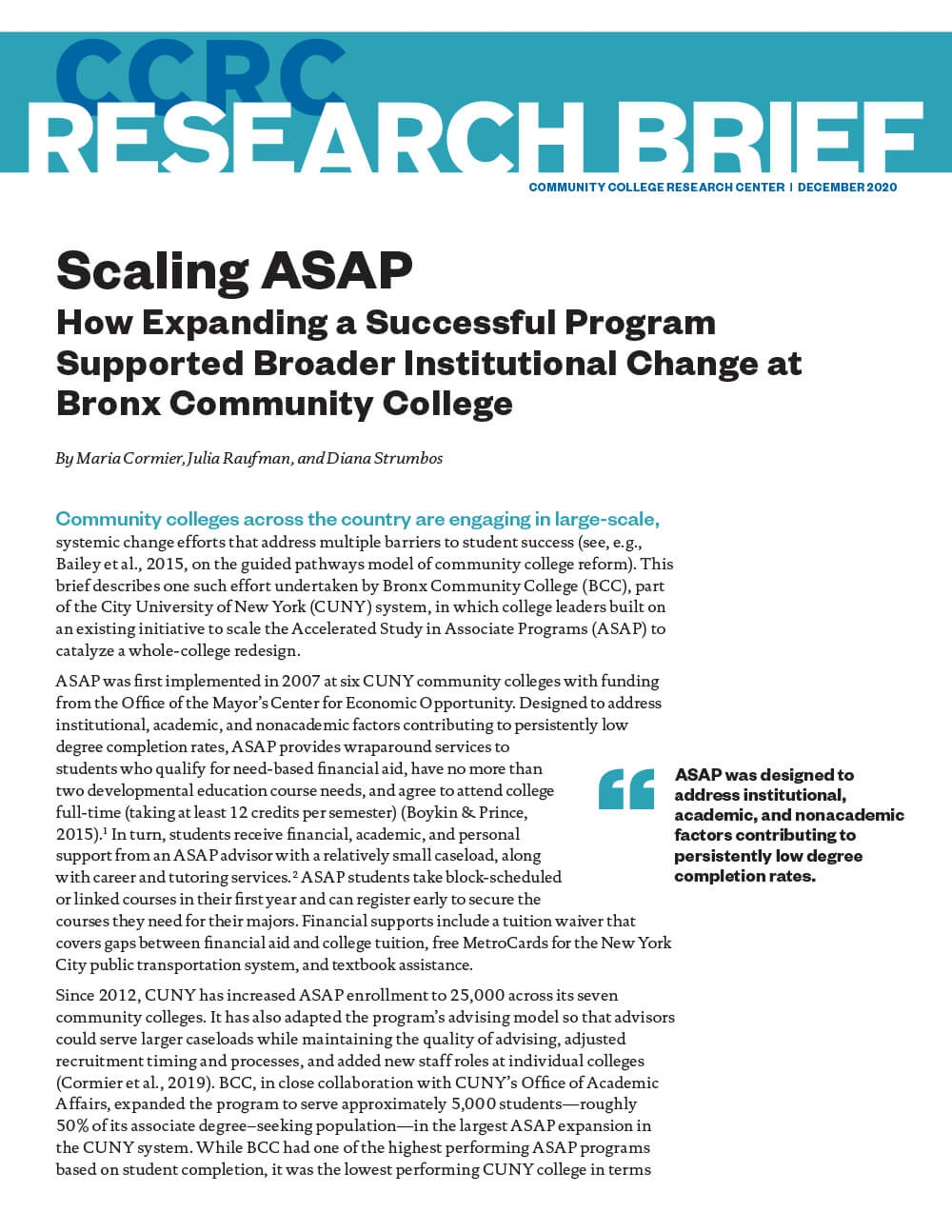
Community colleges across the country are engaging in large-scale, systemic change efforts that address multiple barriers to student success. This brief describes one such effort undertaken by Bronx Community College (BCC), part of the City University of New York (CUNY) system, in which college leaders built on an existing initiative to scale the Accelerated Study in Associate Programs (ASAP) to catalyze a whole-college redesign.
First piloted in 2007, ASAP provides eligible students with robust financial, academic, and personal support and has been shown to substantially increase three-year completion rates at CUNY’s community colleges. Since 2012, CUNY has increased ASAP enrollment to 25,000 across its seven community colleges. BCC, in close collaboration with CUNY’s Office of Academic Affairs, expanded the program to serve approximately 5,000 students—roughly 50% of its associate degree–seeking population—in the largest ASAP expansion in the CUNY system.
This brief examines the relationship between BCC’s ASAP expansion and institutional change to illuminate how scaling a discrete reform can impact other areas of the college and change the way an institution serves all students. It also shares preliminary results from an internal evaluation of CUNY’s system-wide ASAP expansion, highlighting data from BCC. Overall, the authors’ findings suggest that grounding institutional reform efforts in local programming functions provides an effective starting point for widespread change.
